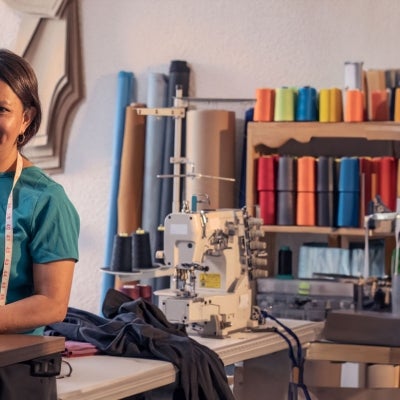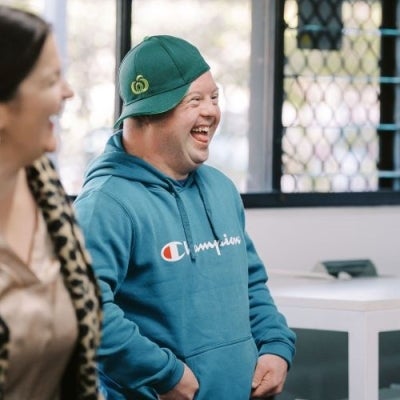Refine results
-
5 February 2015Book page
11 Children indefinitely detained
11.1 Refugees with adverse security assessments 11.2 Sydney Detention Centre 11.3 Findings in relation to children indefinitely detained As of August 2014 there were nine children in detention centres in Australia with parents who had received adverse security assessments from the Australian Security Intelligence Organisation (ASIO). These children are indefinitely detained in Australia… -
14 December 2012Book page
Indigenous Deaths in Custody: Chapter 6 Police Practices
Explore a report prepared for the Aboriginal and Torres Strait Islander Commission in relation to Indigenous deaths in custody and police practices. -
14 December 2012Book page
Commissioners' statements - Annual Report 2009-2010: Australian Human Rights Commission
Last year, when I announced the priorities for my term I said that, as a nation, we needed to develop stronger and deeper relationships between Aboriginal and Torres Strait Islander peoples and the rest of the Australia, between Aboriginal and Torres Strait Islander peoples and all levels of government, and between ourselves as Aboriginal and Torres Strait Islander peoples. -
11 February 2014Book page
2 The case for change
2.1 Indicators for change In Australia, 45 per cent of people with disabilities live in poverty or near poverty. This situation has worsened since the mid-1990s. Employment rates for people with disabilities have been decreasing and so too have educational outcomes. [4] Women and girls with disability experience violence at significantly higher rates, more frequently, for longer, in more… -
14 December 2012Book page
Indigenous Deaths in Custody: Part E Profiles: Indigenous Deaths in Custody 1989 - 1996
That the death occured as a result of cardiorespiratory failure as a result of pneumonia from the aspiration of fluids in the chest cavity following brain damage. The deceased was found to have contributed to his death by his excessive intake of alcohol and his neglect of his own nourishment. The attending doctor at the hospital and the police forensic surgeon were also found to have acted… -
Asylum Seekers and Refugees14 August 2014Speech
Sister Clare Condon - Sanctioned Violence: What does it do to our society and relationships?
I acknowledge the Gadagal People of the Aora nation on whose land we meet. I pay my respects to the elders past and present. I come here today as an ordinary citizen. I am not an academic, nor a lawyer. I am simply a concerned citizen. There are many nuances to the meaning of the word violence. It is about violating another; abusing and damaging; often about the abuse of power. It is… -
Aboriginal and Torres Strait Islander Social Justice14 December 2012Webpage
Moving Forward with Dignity - The Report of the Law Commission of Canada and its aftermath
The French version of this speech is available from the offices of the Law Commission of Canada, 473 Albert Street, 11th floor, Ottawa, K1A 0H8, and will be available on the web site www.cdc.gc.ca.ù -
14 December 2012Book page
Indigenous Deaths in Custody
Paul Blackmore’s photographs illustrate this report. They depict an inspired local initiative. Five years ago the Royal Commission into Aboriginal Deaths in Custody drew attention to the appalling conditions in police lock-ups in rural Australia. The cells in Murgon, three hours north-west of Brisbane, were typical - dirty, disgusting, depressing. Detective Sergeant Ryan and Senior Sergeant… -
Commission – General14 December 2012Speech
20 Years of Mandatory Immigration Detention: the imperative for community-based arrangements for those who seek Australia’s protection
Thank you for your kind introduction. I wish to start today by acknowledging the Kaurna People of the Adelaide Plains, the traditional owners of the land on which we are meeting. On behalf of the Australian Human Rights Commission, I pay my respects to their elders past and present. -
Disability Rights29 September 2016Speech
Equal before the law? How the criminal justice system is failing people with disability
I acknowledge the traditional owners of the land on which we meet and pay my respect to their elders past and present. I am delighted to be here today to deliver the 2016 Annual Costello Lecture. Last year, the President of the Australian Human Rights Commission, Professor Gillian Triggs, delivered a lecture on business and human rights, proposing that the corporate world is both a cause and… -
14 December 2012Book page
Bringing them Home - Chapter 6
The forcible removal of Indigenous children from their families occurred during two periods in Tasmania. The first commenced with the European occupation of Van Dieman's Land (as Tasmania was called until 1856) in 1803 and lasted until the middle of the nineteenth century. The second commenced in the 1930s with the forcible removal of Indigenous children from Cape Barren Island under general… -
Rights and Freedoms11 September 2020Submission
Review of Australian Federal Police Powers (2020)
The Australian Human Rights Commission (the Commission) makes this submission to the Parliamentary Joint Committee on Intelligence and Security (PJCIS) in relation to its ‘Review of AFP Powers’. -
14 December 2012Book page
Chapter 2 - Introduction: Social Justice Report 2009
Indigenous imprisonment rates in Australia are unacceptably high. Nationally, Indigenous adults are 13 times more likely to be imprisoned than non-Indigenous people[1] and Indigenous juveniles are 28 times more likely to be placed in juvenile detention than their non-Indigenous counterparts.[2] -
14 December 2012Book page
Indigenous Deaths in Custody: Chapter 8 Custodial Conditions
8.1 The profiles indicate a growing awareness by custodial and medical staff of issues concerning the proper treatment of both Indigenous and non-Indigenous prisoners. However, implementation of the recommendations is uneven. Some recommendations have not been implemented in any jurisdiction. -
Rights and Freedoms14 March 2024Speech
The Perils of Independence
The Australian Human Rights Commission’s role in protecting human rights in Australia Sir Ronald Wilson Lecture 2021 Emeritus Professor Rosalind Croucher AM President, Australian Human Rights Commission Acknowledgements Thank you Matthew McGuire for your welcome to country and Kendra Turner as MC. I am speaking from the traditional lands of the Gadigal people of the Eora nation, in the city… -
14 December 2012Book page
Indigenous Deaths in Custody: Chapter 9 Juveniles
Explore a report prepared for the Aboriginal and Torres Strait Islander Commission into the deaths in custody of Indigenous juveniles. -
Sex Discrimination8 November 2019Speech
Invisible women in sport
Kate Jenkins Australian Institute of Sport Conference 6 November 2019 Thank you very much for joining me here today. I will start by acknowledging the traditional owners of the land on which we meet, the Ngunnawal people, and pay my respect to their Elders past, present and emerging. Every time I make that acknowledgement, I make it genuinely and from the heart. I'm really proud to live in a… -
Sex Discrimination23 April 2024Webpage

The Positive Duty in the Sex Discrimination Act
The Commission has developed resources to help organisations and businesses understand their new legal responsibilities under the Sex Discrimination Act. -
14 December 2012Book page
Bringing them Home - Chapter 10
Children's experiences following their removal contributed to the effects of the removal upon them at the time and in later life. In this chapter we briefly survey the evidence to the Inquiry concerning those experiences which have had the most significant impacts on well-being and development. -
Disability Rights7 May 2024Webpage

Lessons from IncludeAbility
Watch the webinar with the Centre for Social Impact Swinburne on the background, lessons and evaluation findings from IncludeAbility as well as next steps...
Pagination
- Current page 1
- 2
- Next page Next ›
- Last page Last »
